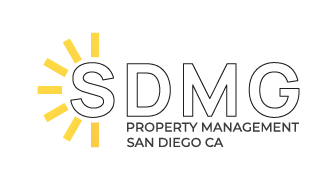Environmental Sustainability Practices in San Diego Rentals
In the heart of Southern California, where the sun shines brightly almost every day, San Diego stands out as a leader in embracing environmental sustainability. The city’s property management industry is no exception, with many landlords and property managers adopting eco-friendly practices to reduce their carbon footprint and contribute to a greener future. This article explores how these professionals integrate sustainability into their operations, the regulatory landscape they navigate, incentives available to encourage green living, and the challenges they face in balancing sustainability with cost-effectiveness.
Incorporating Sustainability Practices
Property managers in San Diego are increasingly incorporating sustainability practices into their daily operations. These efforts range from installing solar panels on rooftops to using energy-efficient appliances and LED lighting throughout rental properties. Additionally, many are implementing water-saving measures such as low-flow showerheads and drought-resistant landscaping to conserve water, a precious resource in this arid climate.
Environmental Regulations
San Diego, like other cities in California, is subject to strict environmental regulations aimed at reducing greenhouse gas emissions and promoting renewable energy use. Property managers must comply with these regulations, which often require them to conduct energy audits, implement energy-saving measures, and report their progress to local authorities. Failure to adhere to these regulations can result in fines and penalties, emphasizing the importance of sustainable practices in property management.
Incentives and Initiatives
To encourage property managers to adopt green practices, various incentives and initiatives are available. These include tax credits for installing renewable energy systems, rebates for energy-efficient appliances, and grants for retrofitting buildings to improve energy efficiency. Moreover, programs like the California Solar Initiative offer financial assistance for homeowners who install solar panels, further incentivizing the adoption of sustainable practices.
Balancing Sustainability with Cost-Effectiveness
While the push towards sustainability is commendable, property managers also face the challenge of balancing these efforts with the need to maintain profitability. Implementing green technologies and practices can be costly upfront, but over time, they can lead to significant savings on utility bills and potentially increase property values. Many property managers are exploring creative financing options, such as energy performance contracts, to fund these improvements without a large initial investment.
Expectations Regarding Energy Efficiency and Water Conservation
Tenants today are increasingly aware of and concerned about environmental issues. They expect their landlords to take steps towards sustainability, including providing energy-efficient appliances, offering recycling services, and ensuring adequate insulation to keep units warm in winter and cool in summer. Similarly, water conservation is a key expectation, with many looking for properties that prioritize efficient irrigation and plumbing fixtures.
The drive towards environmental sustainability in San Diego’s rental market is not just about meeting regulatory requirements; it’s about creating a better, healthier living environment for residents and contributing to a more sustainable future. By embracing these practices, property managers not only benefit from reduced operational costs and increased tenant satisfaction but also play a crucial role in combating climate change. As the demand for green living continues to grow, those who adapt and innovate will find themselves at the forefront of this exciting movement.
